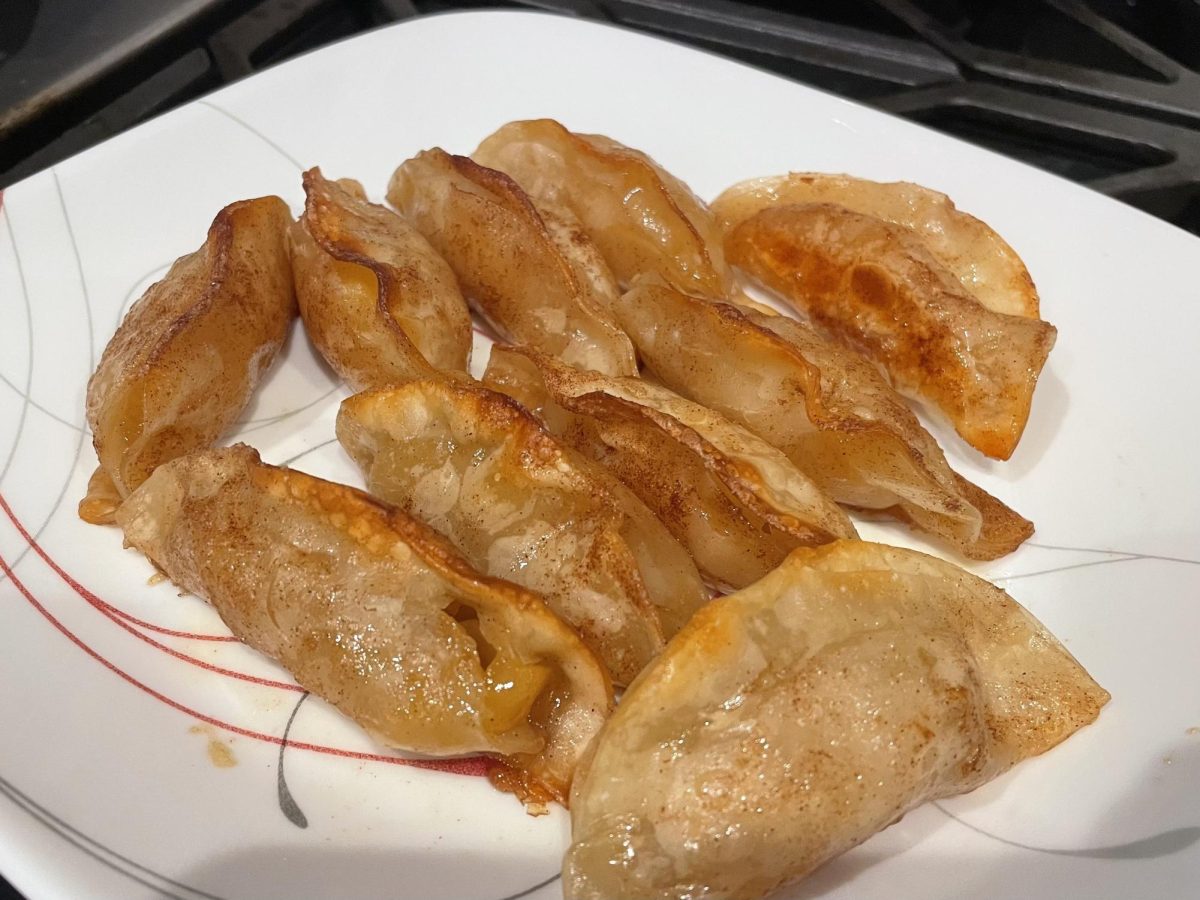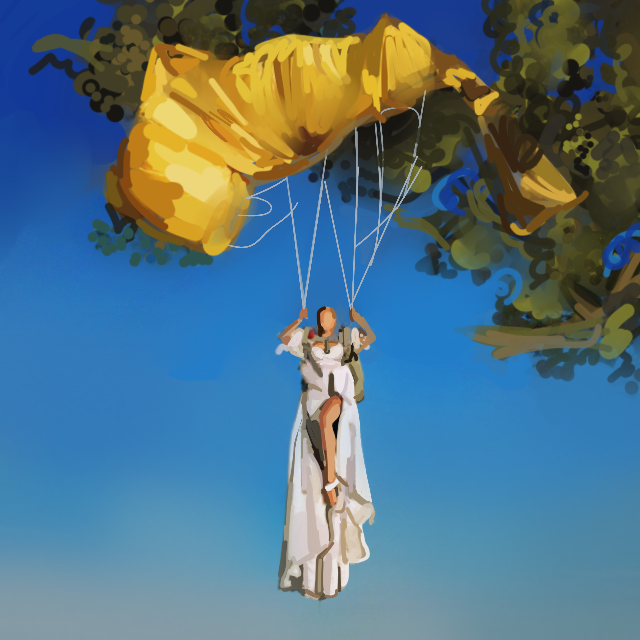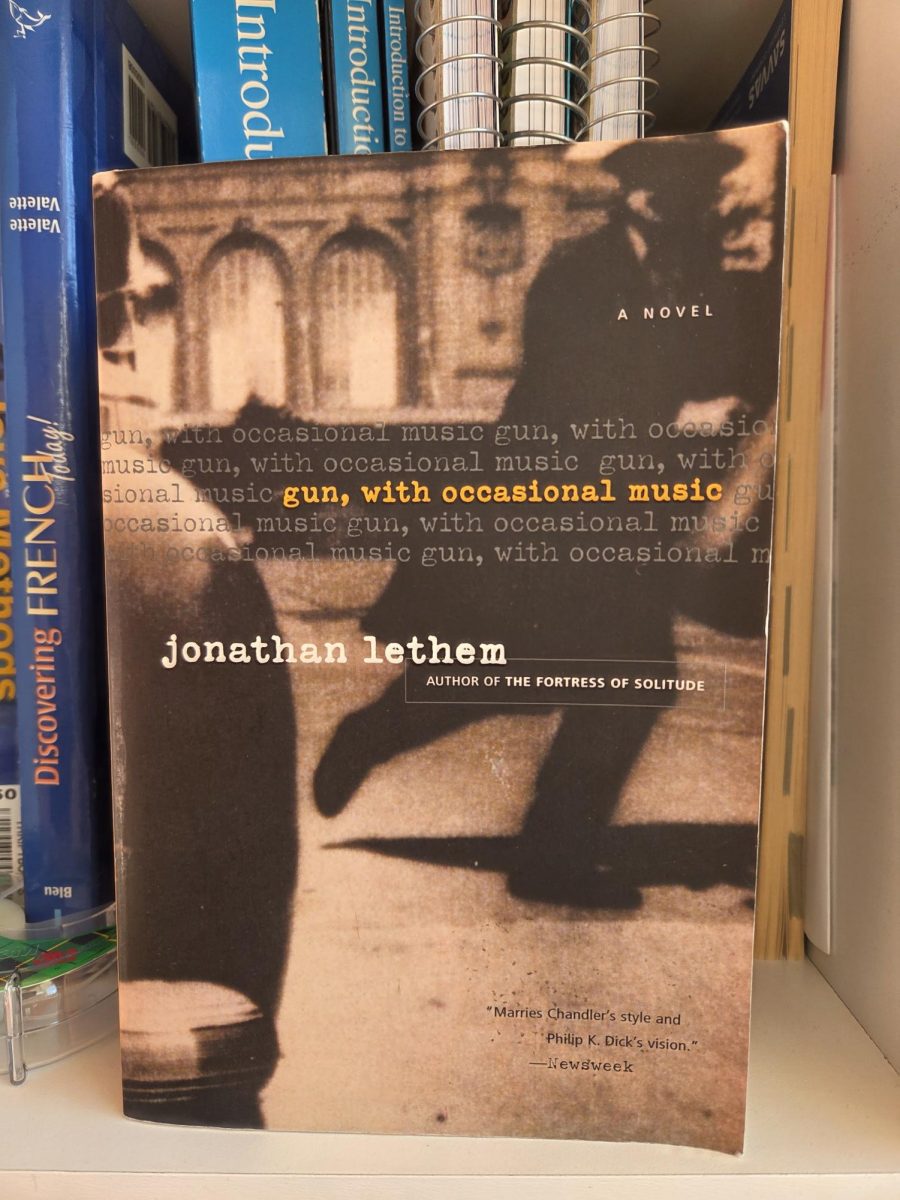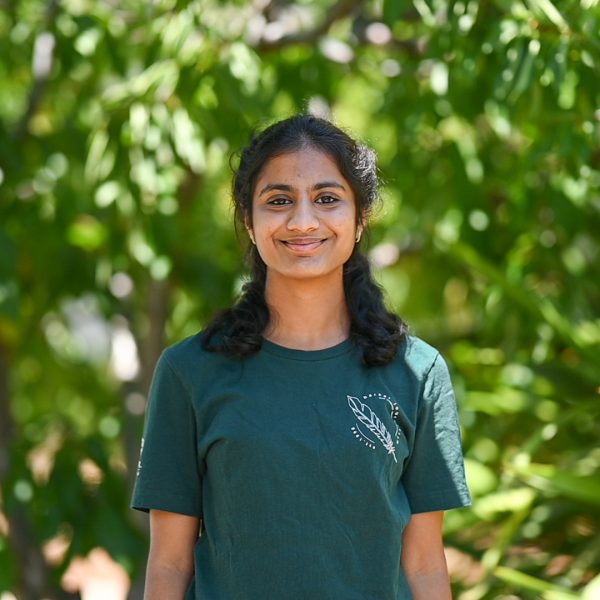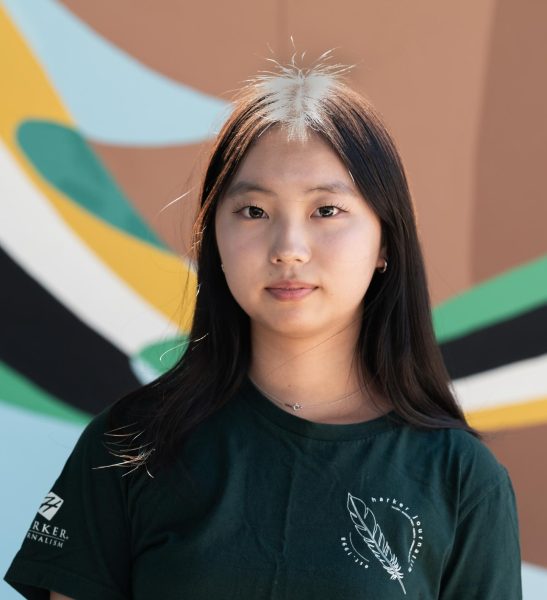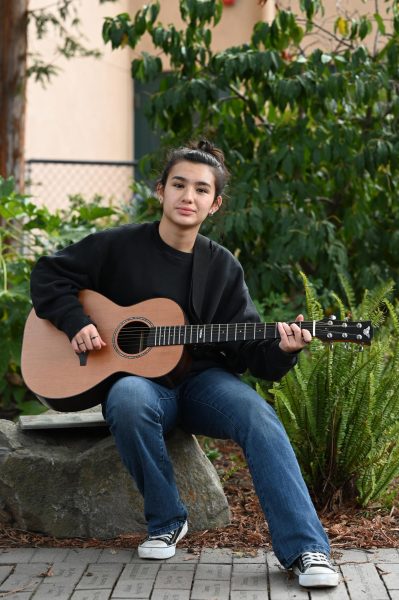
With the many different elements of songwriting, creating a song may seem like a daunting task. The average popular song contains instrumentation, a vocal line and lyrics, all three of which take significant effort to polish. Despite the difficulty of composition, many Harker students fulfill their artistic vision and write their own songs, from lyrical ballads to catchy rap beats.
Junior MacEnzie Blue dreamed about being a singer ever since she was young. In an era where artists have unprecedented access to audiences through short-form content platforms like Instagram and TikTok, she shares her soulful guitar ballads online to reach a broader audience. She also posts videos of her playing her guitar and singing at open mics in local venues.
“I remember when I was younger, I’d always hum my own tunes, and I used to write songs on my ukulele,” MacEnzie said. “I listened to a lot of music, so the idea of writing my own music was always really cool. I’d always just be writing.”
Junior Albert Yao pursues the more technical side of music composition, creating beats on music production software FL Studio. He also serves as an officer in the Music Creation Club and helps other students refine their work using the instruments on the application.
“I try to use my mini-keyboard pretty extensively,” Albert said. “I play out potential melodies, and I like to record actual hand-played notes to put in my songs. Afterwards I use the beat patch to put in drums and percussion. When I really lock into a composition and after a few hours I have a beat, that feels really good.”
Albert’s eclectic music taste often influences his compositions.
“My style is pretty rounded and draws from many different inspirations, but it has my own distinct spin to it,” Albert said. “I like hip hop and rap a lot, but I also have a bunch of K-pop inspirations. New Jeans is one influence for me, since they have both underground rap and K-pop elements.”
However, not every musician works with digital tools. Sophomore David Tang tends to gravitate towards more spontaneous, improvisational compositions rather than complete songs. The ideas for his snippets of music come to him as flashes of inspiration.
“When I compose, it’s usually just small, really short ideas,” David said. “I’m not technically trained, but I do have a lot of ideas. Sometimes, they just come into my head, but I find it helpful when I’m given a prompt. When that happens, it’s easier to find a direction to go to and to execute the ideas.”
Each student approaches the creative process differently. While MacEnzie often draws ideas from emotional concepts, Albert synthesizes his mini-keyboard beats from well-established genres and groups and David creates straightforward, simple musical structures from a variety of musical instruments.
“Starting is really different every time,” MacEnzie said. “Sometimes I start with a verse and then write the song from start to finish, and sometimes I start with the end or middle of a song and then have to build off from there. Usually, I start with a chorus. After that, I see what leads into the chorus, what sounds right to build up into it. Then, the lyrics and music come together.”
Everyone’s composing journey begins at a different place. Albert finds that taking AP Music Theory helped him develop a better understanding of how to create musical ideas.
“Having a bit of a theory background is pretty good for composition,” Albert said. “The biggest help in AP music theory was analysis on chord harmony and different progressions. Sometimes when I make a song, I write down the different chords and how I want to arrange them, and that’s the starting point of a lot of my songs.”
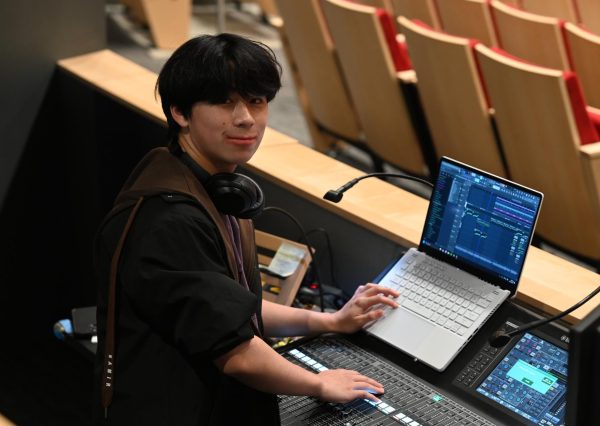
Arranging and composing teacher Susan Nace recognizes that students all have their own ways of creating their songs, and she accommodates many different styles in her class. As a composing teacher, she takes an approach of being an observer to her students’ ideas and letting them find their own path.
“Composing is like cooking,” Nace said. “I love to see them really chew on their own ideas. I ask them, ‘Is there a sweetness in it? Is there a saltiness in it? What’s that idea that you can make a whole meal out of?’ The most rewarding part of teaching is seeing them do something that they’ve never done before.”
While composing brings up many questions, the most important step to starting a new piece is going back to the basics. Simplicity can make the process of composing more approachable and enjoyable.
“Writers often feel the need to be complex, and it’s easy to forget that good music can be simple too,” David said. “Just because it’s cliche does not mean it’s bad. It’s really important that people try to stay true to themselves when composing, even if they think their ideas are overused.”


















![“[Building nerf blasters] became this outlet of creativity for me that hasn't been matched by anything else. The process [of] making a build complete to your desire is such a painstakingly difficult process, but I've had to learn from [the skills needed from] soldering to proper painting. There's so many different options for everything, if you think about it, it exists. The best part is [that] if it doesn't exist, you can build it yourself," Ishaan Parate said.](https://harkeraquila.com/wp-content/uploads/2022/08/DSC_8149-900x604.jpg)




![“When I came into high school, I was ready to be a follower. But DECA was a game changer for me. It helped me overcome my fear of public speaking, and it's played such a major role in who I've become today. To be able to successfully lead a chapter of 150 students, an officer team and be one of the upperclassmen I once really admired is something I'm [really] proud of,” Anvitha Tummala ('21) said.](https://harkeraquila.com/wp-content/uploads/2021/07/Screen-Shot-2021-07-25-at-9.50.05-AM-900x594.png)







![“I think getting up in the morning and having a sense of purpose [is exciting]. I think without a certain amount of drive, life is kind of obsolete and mundane, and I think having that every single day is what makes each day unique and kind of makes life exciting,” Neymika Jain (12) said.](https://harkeraquila.com/wp-content/uploads/2017/06/Screen-Shot-2017-06-03-at-4.54.16-PM.png)








![“My slogan is ‘slow feet, don’t eat, and I’m hungry.’ You need to run fast to get where you are–you aren't going to get those championships if you aren't fast,” Angel Cervantes (12) said. “I want to do well in school on my tests and in track and win championships for my team. I live by that, [and] I can do that anywhere: in the classroom or on the field.”](https://harkeraquila.com/wp-content/uploads/2018/06/DSC5146-900x601.jpg)
![“[Volleyball has] taught me how to fall correctly, and another thing it taught is that you don’t have to be the best at something to be good at it. If you just hit the ball in a smart way, then it still scores points and you’re good at it. You could be a background player and still make a much bigger impact on the team than you would think,” Anya Gert (’20) said.](https://harkeraquila.com/wp-content/uploads/2020/06/AnnaGert_JinTuan_HoHPhotoEdited-600x900.jpeg)

![“I'm not nearly there yet, but [my confidence has] definitely been getting better since I was pretty shy and timid coming into Harker my freshman year. I know that there's a lot of people that are really confident in what they do, and I really admire them. Everyone's so driven and that has really pushed me to kind of try to find my own place in high school and be more confident,” Alyssa Huang (’20) said.](https://harkeraquila.com/wp-content/uploads/2020/06/AlyssaHuang_EmilyChen_HoHPhoto-900x749.jpeg)



